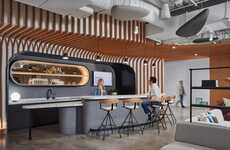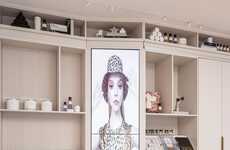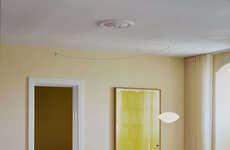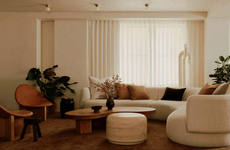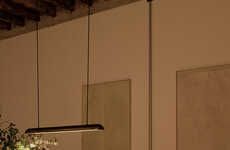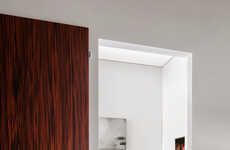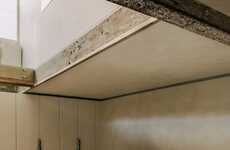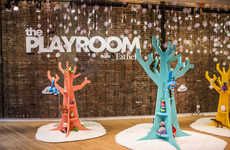
Egg Collective Boasts a Second Showroom in New York City
Kalin Ned — June 6, 2019 — Art & Design
References: eggcollective & dezeen
Egg Collective recently opened another point-of-contact in New York City's Tribeca neighborhood. The setting is elevated, stylish and cozy. When curating the showroom, the company looked toward facilitating an intimate environment that would allow consumers to feel like they are in a home. This approach to retail can prove to be quite beneficial as it boasts an approachable way, in which individuals can imagine a furniture piece or an accessory in their own spaces.
The new showroom embraces a warm color palette and it effortlessly mimics the layout of the residential setting. This physical extension of the brand largely differs from Egg Collective's previous location in New York City which was "a very open, airy white box kind-of space."
Photo Credits: Matthew Williams/ Egg Collective
The new showroom embraces a warm color palette and it effortlessly mimics the layout of the residential setting. This physical extension of the brand largely differs from Egg Collective's previous location in New York City which was "a very open, airy white box kind-of space."
Photo Credits: Matthew Williams/ Egg Collective
Trend Themes
1. Home-like Showrooms - Creating showrooms that mimic a cozy, residential setting presents disruptive innovation opportunities for the retail industry.
2. Intimate Retail Environments - Designing showrooms that facilitate an intimate environment can disrupt the traditional retail experience and enhance consumer engagement.
3. Personalized Shopping Experience - Offering showrooms that allow consumers to imagine furniture pieces or accessories in their own spaces can disrupt the home decor industry by providing a more personalized shopping experience.
Industry Implications
1. Retail - The retail industry could benefit from creating home-like showrooms that offer a unique shopping experience.
2. Home Decor - The home decor industry has an opportunity to innovate by designing showrooms that mimic residential settings and help consumers envision products in their own homes.
3. Furniture - The furniture industry can disrupt traditional retail by creating intimate showrooms that showcase products in a cozy and approachable environment.
4.9
Score
Popularity
Activity
Freshness

